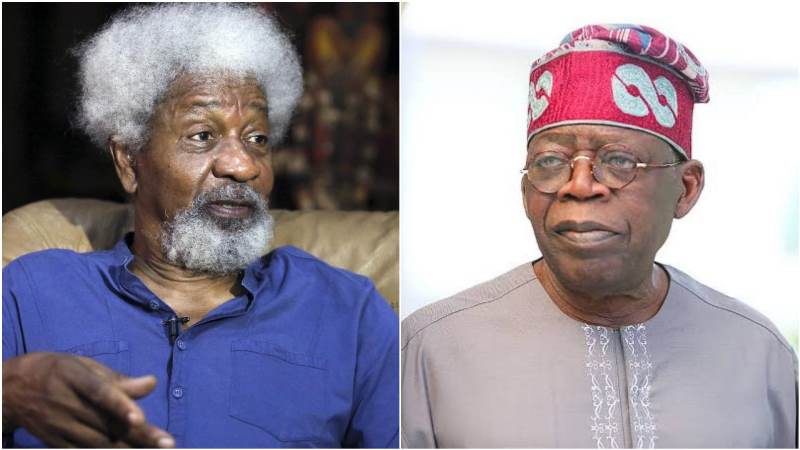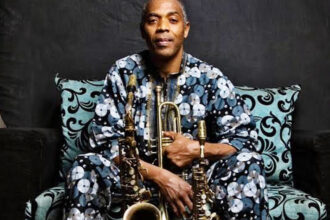
Nigeria’s Nobel Laureate, Professor Wole Soyinka, has explained why he accepted the decision of the Federal Government to rename the National Theatre in Lagos after him, despite his longstanding opposition to naming public monuments after individuals.
The National Theatre, situated in Iganmu, Lagos, has now been formally renamed the Wole Soyinka Centre for Culture and the Creative Arts by President Bola Ahmed Tinubu. The move was confirmed during the reopening and re-dedication of the newly refurbished facility.
At the ceremony, Soyinka addressed the audience with candour, acknowledging that the honour left him with mixed emotions. He admitted that the decision presented him with a personal dilemma, given his history of opposing what he once described as “the personal appropriation of public monuments” by political leaders and elites in Nigeria.
Soyinka reminded the gathering of his outspoken record on the matter, noting that he had consistently criticised past leaders who “wanted everything named after them.” He added that his position had always been rooted in the belief that public institutions should remain symbols of collective heritage, not personalised legacies.
“I accepted this honour with mixed feelings,” Soyinka confessed. “First of all, I’m notorious for having criticised any appropriations — personal appropriations of public monuments by some of our past leaders, which would end up that everything is named after them. I have been guilty of saying other people do not merit this kind of monumental dedication, and then I had to stand up in public and watch my name being put up as yet another appropriator. It just didn’t seem well with me.”
The Nobel Laureate admitted, however, that in a country where countless public places have been renamed after individuals, only a small fraction of such honours are truly merited.
“I’ll be modest, given the general estimate, to say that about 25 percent of monuments — whether they are buildings or roads in particular — in this country are well and truly deserved,” he noted.
Reflecting on Nigeria’s cultural history, Soyinka invoked the names of legendary figures such as theatre pioneer Hubert Ogunde and opera composer Adam Fiberesima. He acknowledged their contributions to Nigerian theatre and said the decision to accept the renaming was partly driven by a recognition that someone in the field must “carry the can” for the sacrifices and achievements of the artistic community.
“It occurred to me eventually that somebody has to carry the can,” he remarked. “And so, in a way, this recognition extends beyond me as an individual, to all those who laid the foundation of modern Nigerian theatre.”
Soyinka also revealed that nostalgia played a powerful role in his decision. He recalled the original construction of the National Theatre during the military era and its central place in Nigerian cultural history, particularly during the FESTAC ’77, the Second World Black and African Festival of Arts and Culture.
“I have another reason, which is nostalgia,” Soyinka explained. “I remember this building was first erected during the military regime. We had FESTAC ’77 in this very hall. It’s a different hall completely, it’s nothing like what that building became over the years.”
The Nobel Laureate spoke with sadness about the deterioration of the edifice over subsequent decades, describing the once-proud landmark as a derelict site.
“It was degraded to such an extent that when Lagos was celebrating its 50th anniversary and we looked for a hub, a centre of activities, one of the places we visited was here,” he recalled. “I took one look at it and when the governor and his team wanted to come back to take a second look, I said, ‘You go without me.’ I even advised them, half-jokingly, to plant a bomb and blow it up. It was irredeemable. It was not just a desert; it was a slum.”
Contrasting the building’s former decline with its current rebirth, Soyinka expressed admiration for the transformation of the National Theatre. He praised the extensive refurbishment and described the renovated centre as a fitting space for culture and the creative arts.
“If eating one’s word produces a morsel like this, then it’s a very tasty set of words,” he said, smiling.
For Soyinka, the renovation gave fresh meaning to the institution, and its renaming after him could serve as a symbolic link between Nigeria’s past and future in the arts.
The decision to rename the National Theatre after Wole Soyinka has been met with mixed reactions. Some critics argue that the Nobel Laureate’s long-held views against such practices make the honour contradictory. Supporters, however, insist that Soyinka’s towering global stature, combined with his lifelong contribution to literature, theatre, and advocacy for human rights, makes him a deserving exception.
What is not in dispute is that the National Theatre has always been a central symbol of Nigerian arts and culture. With its refurbishment and rededication, it is set to reclaim its status as a hub for performance, exhibitions, and creative dialogue.
For Soyinka, the honour may have come with inner conflict, but it also presents an opportunity to inspire a new generation of artists and to preserve the rich cultural memory of a building that has mirrored Nigeria’s creative journey.
As the curtain rises on a new era for the National Theatre — now the Wole Soyinka Centre for Culture and the Creative Arts — the Nobel Laureate’s words capture both humility and hope: a reluctant acceptance turned into a celebration of artistic heritage, renewal, and legacy.






